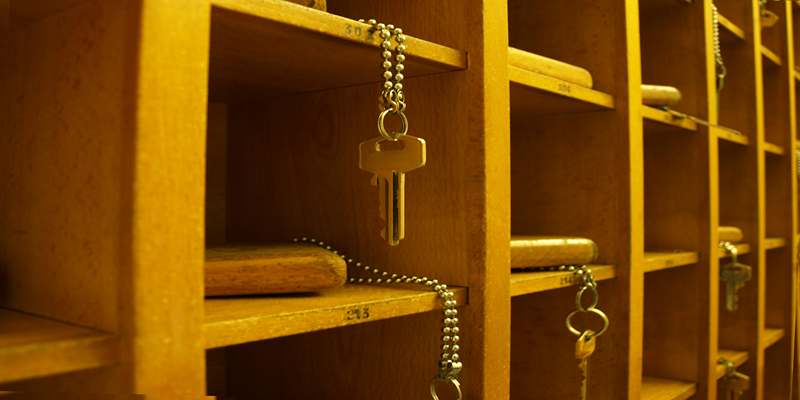The Hotel Key Debate: Should You Keep That Plastic Room Card?
Door keys are familiar to any traveler and are one of the requirements for hotels to provide their guests with security and comfort. These types of plastic cards have been preferred to the traditional metal keys when it comes to check-in and check-out processes. However, a rising controversy is being witnessed on whether or not guests should retain their key cards after checking out or return them back. Some people retain key cards for the sake of mementos, whereas others are concerned about security issues or environmental impacts. This has raised even bigger controversy over the hotel key card issue and its effects. Is there any justified argument that such a key (or keys) should be kept, or should they always be returned? It is necessary to review the facts and myths concerning this plastic room key issue and analyze the potential consequences.

Understanding Plastic Hotel Key Cards
Functionality and Common Usage
The reality is that doors to the rooms are opened with the help of magnetic stripes or RFID, which is radio-frequency identification. These are set at the time of check-in and get turned off upon check-out to ensure that no unauthorized personnel gain access. Many hotels use key cards, as there are several things you can do with them; they can be easily canceled and then replaced if missing. In this case, there are still many misconceptions regarding the functionality of the key cards among the travelers themselves. Some people suppose that they store personal information, while others think that they can be used in other properties. In fact, most of the keys contain only access information, and once the card is deactivated, it cannot be used again. In the following, it is necessary to comprehend the role of these cards so as to determine whether they should be retained or not.
Data Storage and Security Concerns
A typical controversy regarding hotel key cards is that these cards contain personal data. Some people are concerned about keeping the hotel key because they believe that credit card details, for instance, can be stored in the card. However, this is a myth. Most of the hotel key cards are just marked with the number of the room, the date of expiry, and a simple access code. Another important aspect is that even if a key card is lost or stolen, one cannot get any other person’s details from it. However, security experts recommend guests return key cards because if a card is left active by accident, it permits unauthorized entry into the unit.
The Environmental Impact of Plastic Key Cards
Contribution to Plastic Waste
One of the major issues that have been raised in the debate of the use of plastic room keys is that these cards are disposable in nature. Currently millions of travelers use hotel accommodations, and this results in the use of plastic key cards, which in a year are dumped in the environment. The majority of key cards are made of PVC, a material that does not decompose over time and is part of the plastic group. One disadvantage of such cards is that they are normally used once and then thrown away, leading to pollution by plastics.
Sustainable Alternatives Adopted by Hotels
Due to this, various hotels have adopted eco-friendly key card systems as a way of combating the dumping of plastics. There are new key cards made of biodegradable or wood material, which degrade in the environment faster than the original ones. Some have decided to introduce digital keys, where a guest is able to unlock a room with the help of his or her mobile phone. It has also been noted that the hotels are reminding their guests to return their key cards so as to be used again in the subsequent stays. With these steps, hotels are being sensitive to the environment and also, at the same time, considering the costs. For those tourists who are concerned with the state of the environment, they should return their key cards to the hotels that reuse them to avoid the manufacture of new keys.

Security Implications of Retaining Hotel Key Cards
Potential Risks of Keeping Key Cards
Even though they do not contain any personal information about the cardholder, retaining hotel key cards remains an issue of concern in as much as security is concerned. If a hotel does not deactivate a key card by mistake, then the person who gets hold of it will be able to open the room door after checkout. However, in this case, the incident has raised the issue of security measures that are adopted by hotels. Some guests also remove the key cards for this purpose, but this may be dangerous in the event the card still holds usable information. Returning key cards is beneficial to hotels because it helps the hotel management to deactivate the cards and avoid individuals gaining access to rooms fraudulently. It is a simple measure that can improve the general security of the hotel.
Measures to Protect Personal Information
While most hotel key cards do not contain any customers’ information, guests should still be cautious. To enhance security, a magnetic strip or RFID chip on a key card can be scratched, and the card is then disposed of. This ensures that it cannot be used again even if the deactivation was overlooked in the first place. Security is also being raised by the application of better encoding and cloud facilities access to hotels. Such systems make it possible to keep a check on the key card access of a guest once they check out of the hotel.
Conclusion
The main reasons for the debate on the use of plastic room keys are security issues, environmental effects, and policies of hotels. Although possession of a key card does not necessarily endanger the hotel, returning it guarantees that the hotel disables the card. In addition, it also supports sustainability by cutting down the use of plastics. To a certain extent, for those who are security-conscious, the key cards can be destroyed either by demagnetizing the strip or the chip. In the end, it is up to the person on whether to keep the hotel key or not. However, it is a responsible decision for most of the travelers to return key cards when possible, as it is beneficial for both hotels and the environment.











